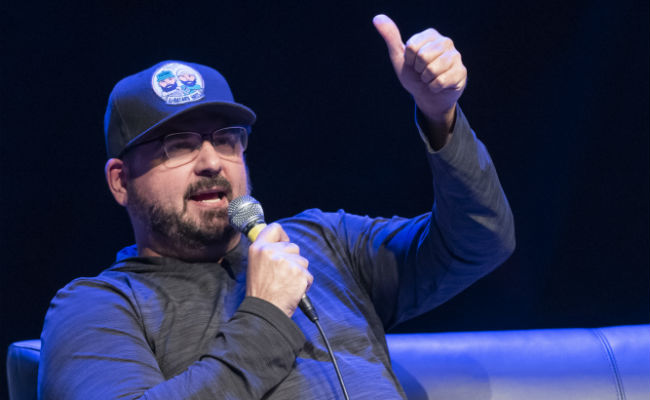
Dan Le Batard isn’t leaving ESPN anytime soon, and though he certainly has a problem with the way the company handles politics, he apparently plans to follow the rules. Le Batard missed some scheduled appearances on his ESPN radio show and his TV show, Highly Questionable, last week after a fiery criticism of the way the Worldwide Leader handles political conversations on the network.
Le Batard said ESPN didn’t have the stomach for talking politics, instead using athletes as a “meat shield” and waiting for them to mention politics first before wading into political issues. The criticism came in light of Donald Trump’s “send her back” comments about a Muslim congresswoman of color, Ilhan Omar, comments that Le Batard lambasted as “obviously racist.”
Those comments were followed by some outcry about ESPN’s perceived political leanings, as well as a reckoning with ESPN brass for his comments, which flew directly in the face of ESPN’s public and private policies about politics. Le Batard reportedly met with ESPN president Jimmy Pitaro about the policy and his comments, and eventually missed his radio show on Monday. He had since returned to the airwaves and had decided to stay with the network, but now it seems he will be more careful with sharing his politics.
According to a Washington Post feature of Pitaro, Le Batard will now consult with management before speaking again on the subject.
For now, Pitaro has quelled the Le Batard controversy. He met with the host in New York on Thursday, and Le Batard will continue at ESPN. If Le Batard feels the need to address a political issue in the future, he will check with higher-ups, according to a person with knowledge of the conversation. And unlike in 2017, there was no accompanying tweet from Trump, and the drama felt contained.
The interview with Pitaro for the feature happened before Le Batard’s comments, but it also touches on the network’s political policy in a few different quotes. And Pitaro has made it clear that he doesn’t want his employees dividing potential viewers with political talk. In his mind, that’s not why people watch sports.
“We have to understand we’re here to serve sports fans,” Pitaro said at the Yankees game, weeks before Le Batard’s comments. “All sports fans.”
It’s a policy that flies in the face of Le Batard, who spoke passionately about immigration and political rhetoric because of his background in both. It also minimizes the impact many athletes have tried to make by using sports as an avenue to advocate for social change. As Le Batard noted, athletes like Bill Russell and Jim Brown have spoken out about injustice and society because sports have given them a platform to do so and reach a wide audience.
Pitaro, however, thinks people come to sports to forget about all that.
“I’ve had this discussion internally with hundreds of our employees that sports is about uniting and ESPN needs to unite people around sports,” Pitaro said. “That’s our role, or one of our roles.”
According to Pitaro, internal data shows that people view ESPN as less liberal since he’s taken over, so he certainly has numbers to prove his case. But that’s far from consolation to employees like Le Batard and others barred from talking politics on Twitter or on air, lest they draw the ire of the network’s more conservative viewers and a very active tweeter currently sitting in the White House.






